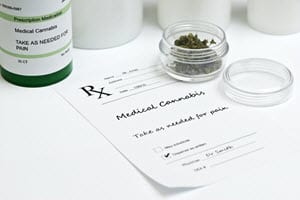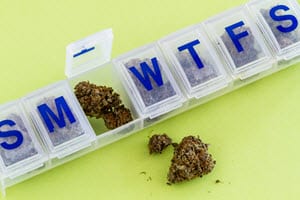 Free Consultation
(610) 667-7511
Free Consultation
(610) 667-7511
 Free Consultation
(610) 667-7511
Free Consultation
(610) 667-7511
 Pennsylvania has become the 24th state to legalize medical marijuana. However, it will be quite some time before Pennsylvanian can actually expect to be able to use THC (the active ingredient) for medicinal purposes.
Pennsylvania has become the 24th state to legalize medical marijuana. However, it will be quite some time before Pennsylvanian can actually expect to be able to use THC (the active ingredient) for medicinal purposes.
The law in Pennsylvania allows for medical marijuana in cases that are considered “serious medical conditions.” These conditions are specifically defined.
The medical condition for which medical marijuana may be prescribed are currently:

It will be some time before the dry leaf form can be prescribed.
In Pennsylvania, smoking pot is not an option. The medication may be provided in specified forms. This includes:
At this point, until new regulations are adopted, “medical marijuana may not be dispensed to a patient or a caregiver in dry leaf or plant form.”
Those who seek to use medical marijuana in Pennsylvania will have a long wait before they can obtain a prescription. Many steps must occur must before dispensaries are up and running. In addition, doctors will be required to receive training in whether it is appropriate to recommend the drug. Those doctors will not actually prescribe it. Instead, specialized doctors will be provided with the ability to prescribe the medication. Pennsylvania will have 50 dispensaries, with each allowed to have up to 3 locations, for a total of 150. Additional regulations will need to be passed to implement the law before everything can go forward.
The time frame for everything to be set up is expected to be 18-24 months.
Children who are 18 and under are allowed to obtain medical marijuana from other states under the current law. In addition, adults who suffer from one of the 17 listed conditions are expected to be able to obtain the medication from out-of-state once new regulations are created.
In either case, please be sure to check with your doctor and/or an attorney before you order from out-of-state. It is important that you not inadvertently violate the law. This can have serious consequences.
Remember, it is still illegal to drive under the influence. In addition, Pennsylvania is very strict about the amount of THC you may have in your system while you are driving, even if you have a prescription. If you cause a car crash and have too much THC in your bloodstream, that will likely cause liability issues for you, as well as potential criminal charges. Make certain you talk with your doctor about what is appropriate for your medical condition and whether it is safe for you to drive.
In the end, what it comes down to is that while medical marijuana is now legal in Pennsylvania, it will be some time before the procedures, doctors and dispensaries are in place. And remember, marijuana is still illegal according to the federal government.
LOWENTHAL AND ABRAMS, P.C.

Contact us for a FREE consultation. No fee unless compensated.